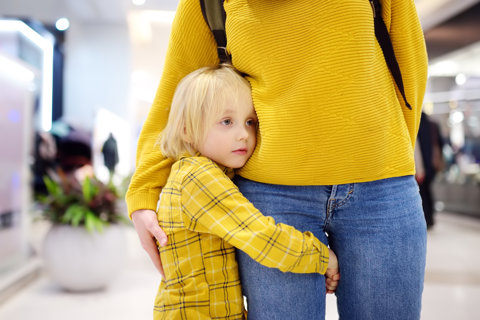Understanding Special Guardianship Orders
Before we explore the process of potentially regaining custody of a child subject to an SGO, it's essential to understand what an SGO entails. A Special Guardianship Order is a legal arrangement that appoints a guardian to care for a child, providing them with enhanced parental responsibility. This order is often sought in cases where adoption is not deemed necessary, but the child requires a stable and secure long-term placement.
A special guardian assumes significant responsibility for the child's upbringing, making decisions about their education, healthcare, and general welfare. However, an SGO doesn't extinguish the parental rights of the birth parents. They maintain their parental responsibility, though it's limited when compared to the special guardian's responsibilities.
What is the difference between Adoption Order and Special Guardianship Order?
While an adoption order results in the parents losing their parental responsibility, a special guardian shares parental responsibility with the parents, maintaining the legal connection between the child and their birth family. Nevertheless, the special guardian’s parental responsibility takes precedence over that of the parents, allowing them to make decisions regarding the child without requiring parental consent under specific circumstances.
Furthermore, special guardians may be eligible for financial assistance from the local authority to aid in the children’s care.

Who Is Eligible to Seek Special Guardianship?
People who are 18 or older can apply to become a special guardian of a child if they meet any of the following conditions:
- If you're related to the child and they've lived with you for at least one year right before you apply, or if a judge has allowed you to apply for the special guardianship.
- If you've been taking care of the child in your home as a foster parent for at least one year before applying.
- If the child has been living with you for at least three years in the past five years.
- If the local government agency looking after the child agrees to your application.
- If you've gotten permission from a judge.
- It’s important to note that joint applications for special guardianship are permissible, and there is no requirement for the applicants to be married.
Why Has a Relative been Given a Special Guardianship Order?
There are several reasons why a relative could have special guardianship over your child. This might include the court deciding that you were not in a position to meet a child needs and thus an order was made to keep that child within the wider family/friend support network.
Before anyone can apply for a Special Guardianship Order for your child, they will need to give the Local Authority 3 months’ notice. The Local Authority will undertake an assessment, which includes information about the child and what is within their best interests. This report must be completed and sent to the court for the Special Guardianship Order to be made.
If your child was considered old enough at the time, their wishes will be taken into consideration, and they will be asked if they would want your relative as a special guardian. Although there is no set age as to who is “old enough” the Court will usually say a child is old enough to make this decision if they understand the idea of special guardianship.
Varying and Discharging the Special Guardianship
A special guardianship usually lasts until your child is 18. However, if circumstances change significantly the Court can vary or even discharge the Order. Varying an Order means changing the terms of the Order and discharging means to get rid of the Order completely and returning the child back to their parent/s.
Challenging a Special Guardianship Order
Challenges to an SGO typically arise when the birth parents or other family members believe that circumstances have changed, or the child's best interests would be better served by altering or revoking the SGO. Here, we will explore the legal avenues for challenging an SGO to regain custody of a child:
- Revoke or Vary the SGO through the Courts
To challenge an SGO, a concerned party must apply to the court, presenting a compelling case for the SGO to be revoked or varied. This process involves complex legal procedures and is subject to the Children Act 1989 and subsequent amendments.
Children Act 1989
The Children Act 1989 is the cornerstone of child law in the UK. It outlines the legal framework for issues related to children, including custody arrangements, parental responsibility, and the making of SGOs.
Under Section 14 of the Children Act 1989, the court has the authority to revoke or vary an SGO if there has been a significant change in circumstances. The court will always prioritise the best interests of the child when considering any changes to the SGO.
- Child Arrangement Order
In cases where an SGO is not revoked, a parent or family member can seek a Child Arrangement Order (CAO) that defines the time a child spends with each parent or guardian. This may be a way to regain contact with the child and, over time, restore a closer relationship.
- Mediation and Support Services
Family mediation can provide a constructive platform for all parties involved to discuss concerns, reach agreements, and potentially find solutions without going to court. Mediation can be a helpful step before pursuing legal action.

- Return to Court
If mediation or negotiation efforts fail to yield the desired outcome, the concerned party may return to court to present their case for revoking or varying the SGO.
What happens if you decide to go down the court route?
Special Guardianship Orders are intended to provide a stable and permanent home for a child throughout their upbringing. Therefore, there is a high threshold for requesting that the order be revoked, and parents do not have an automatic right to legal aid in such cases. The courts have established a two-stage test for this process:
Change of Circumstances: First, the parent must demonstrate a change in circumstances.
Child's Welfare and Prospects: Then, the court will evaluate the child's welfare and the likelihood of the parent's success in challenging the SGO.
What Constitutes a 'Significant Change of Circumstances'?
When considering what qualifies as a 'significant change of circumstances,' the courts typically do not place excessive emphasis on the word 'significant' concerning 'changes.' In a notable case, G (A Child) [2010] EWCA Civ 300, Wilson LJ proceeded on the basis that there is no substantive difference between applying for permission to discharge a placement order under the Adoption and Children Act 2002 and applying for permission to discharge an SGO, even though the latter refers to 'significant' changes, while the Adoption and Children Act does not.
Various court decisions have affirmed that the bar should not be set impossibly high, ensuring that parents are not discouraged from improving their situations. Nevertheless, the change in circumstances must be relevant to the case.
In the case of Re B-S (Children) [2013] EWCA Civ 1146, the court articulated the test for a 'change of circumstances' under the Adoption and Children Act 2002 as follows:
a. The court must be convinced, based on the case's specific facts, that there has been a change in circumstances 'of a nature and degree sufficient, on the facts of the case, to open the door to the exercise of judicial evaluation.'
b. The test should not be overly stringent to prevent parents from bettering themselves or seeking to prevent their child's adoption by imposing an unattainable test.
c. Whether a relevant change in circumstances has occurred is a factual determination, decided by the sound judgment of the tribunal hearing the application.
d. If there is no change in circumstances, the application is unsuccessful.
In another case, also named G (A Child) [2015] EWCA Civ 119, the Court of Appeal concurred that a change in the child's circumstances could be pertinent.
Therefore, the parent must demonstrate relevant changes that justify moving to Step 2 of the process in the judge's discretion. If the concerns about the parent's caregiving in previous care proceedings were grave, they will likely need to demonstrate correspondingly substantial changes.
For instance, in Re G [2010], a mother's child was under an SGO in the care of the maternal grandmother following the mother's involvement in several violent relationships. However, the grandmother agreed not to oppose the mother's application to discharge the SGO after learning about the mother's efforts to attend counselling and therapy, which aimed to help her make better relationship choices in the future. The mother was also successfully caring for her second child without any intervention from Children's Services.
If you find yourself in a situation where you believe an SGO should be revoked or varied to regain custody of a child, it is crucial to seek legal counsel from family law solicitors who can guide you through the intricate legal process while advocating for the child's best interests. Simpson Millar can advise you regarding Special Guardianship Order Matters











